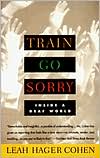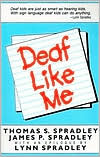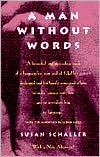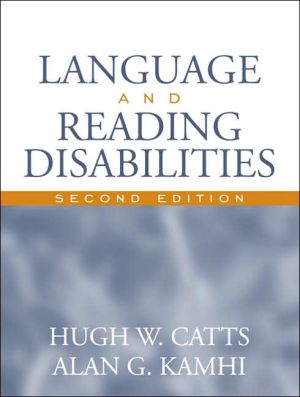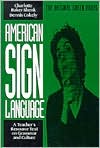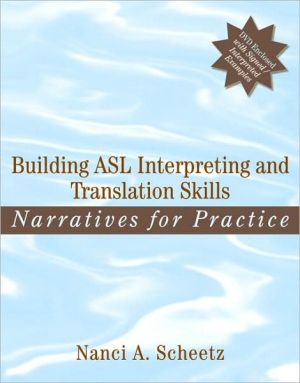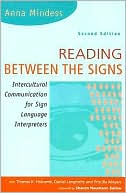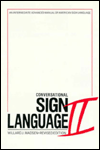Train Go Sorry: Inside a Deaf World
This portrait of New York's Lafayette School for the Deaf is not just a work of journalism. It is also a memoir, since Leah Hager Cohen grew up on the school's campus and her father is its superintendent. As a hearing person raised among the deaf, Cohen appreciates both the intimate textures of that silent world and the gulf that separates it from our own.\ \ This portrait of New York's Lafayette School for the Deaf is not just a work of journalism. It is also a...
Search in google:
This portrait of New York's Lafayette School for the Deaf is not just a work of journalism. It is also a memoir, since Leah Hager Cohen grew up on the school's campus and her father is its superintendent. As a hearing person raised among the deaf, Cohen appreciates both the intimate textures of that silent world and the gulf that separates it from our own. Publishers Weekly Combining memoir and reportage, Cohen provides a sensitive, intimate portrait of a New York City school for the deaf and the issues facing the deaf community. Cohen is not deaf, but her father heads the Lexington School, and she grew up there. She tracks the progress of two students: Sofia, a Russian immigrant bravely learning a second sign language and a new American world; and ghetto-raised James, who finds stability after moving into the school dormitory. Cohen analyzes the fierce debates over mainstreaming the deaf, the value of oralism and whether new cochlear implants rob the deaf of their culture. She tenderly recalls her deaf grandparents, probes her father's dilemmas, reports on her frustrated romance with a deaf man and her work as an interpreter in a program for deaf adults at the City University of New York. She portrays sign language with wonderfully tactile prose--the word ``silence,'' for example, is signed with ``austere arcs.'' If Cohen's narrative is disjointed, her commitment and her descriptive gifts make her book memorable. (Feb.)
\ Publishers Weekly - Publisher's Weekly\ Combining memoir and reportage, Cohen provides a sensitive, intimate portrait of a New York City school for the deaf and the issues facing the deaf community. Cohen is not deaf, but her father heads the Lexington School, and she grew up there. She tracks the progress of two students: Sofia, a Russian immigrant bravely learning a second sign language and a new American world; and ghetto-raised James, who finds stability after moving into the school dormitory. Cohen analyzes the fierce debates over mainstreaming the deaf, the value of oralism and whether new cochlear implants rob the deaf of their culture. She tenderly recalls her deaf grandparents, probes her father's dilemmas, reports on her frustrated romance with a deaf man and her work as an interpreter in a program for deaf adults at the City University of New York. She portrays sign language with wonderfully tactile prose--the word ``silence,'' for example, is signed with ``austere arcs.'' If Cohen's narrative is disjointed, her commitment and her descriptive gifts make her book memorable. (Feb.)\ \ \ \ \ Library JournalThe history of the Lexington School for the Deaf, the oldest school of its kind in the nation, comes alive with Cohen's vivid descriptions of its students and administrators. The author, who grew up at the school, follows the real-life events of Sofia, a Russian immigrant, and James, a member of a poor family in the Bronx, as well as members of her own family both past and present who are intimately associated with the school. Cohen takes special pride in representing the views of the deaf community--which are sometimes strongly divided--in such issues as American Sign Language (ASL) vs. oralism, hearing aids vs. cochlear implants, and mainstreaming vs. special education. The author's lively narrative includes numerous conversations translated from ASL. This is a one-of-a-kind book for both young and old readers. Essential for special education collections.-- Arla Lindgren, St. John's Univ., New York\ \ \ School Library JournalYA-Cohen draws upon her experiences as the hearing grandchild of deaf immigrants to combine personal stories of hearing-impaired individuals with related aspects of deaf culture. Using her first home and her father's place of employment, the Lexington School for the Deaf in New York City, to connect characters and experiences, she shares tales of activities familiar to young adults-boring classes, the school play, selling ads for the yearbook, graduation. The only difference for these students is that they cannot hear and cannot speak the language of the hearing world. Through Cohen, readers share in the challenges, frustrations, fears, triumphs, and joys of achievement not only of these young people, but, through historical vignettes, of her grandparents as well. This perspective allows readers to determine how (or if) life has changed for the deaf in America. A careful reading of Train Go Sorry provides exposure to the urban poor and our country's many immigrants (both past and present), making this a resource suitable for sociology or history students interested in viewing the American melting pot through the eyes of a group of people with a silent past.- Janis Ansell, Tidewater Association Hearing Impaired Children (TAHIC), Virginia Beach, VA\ \
